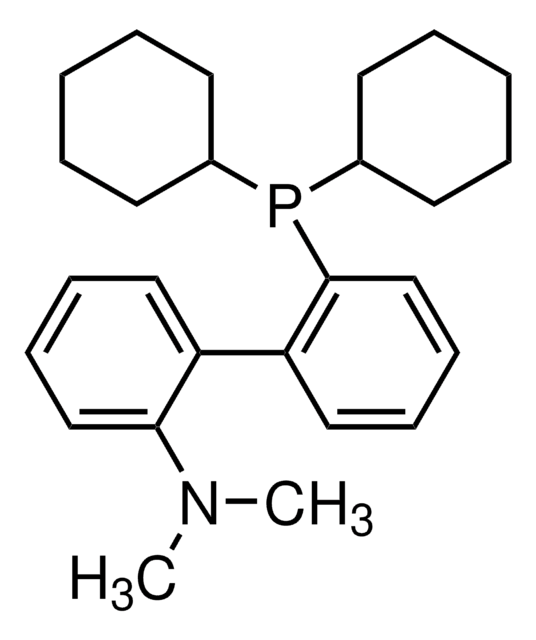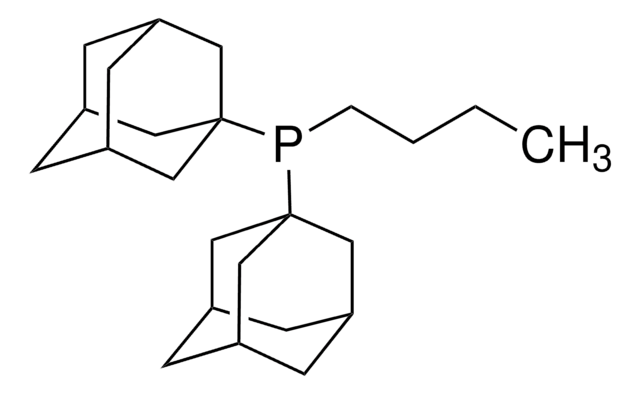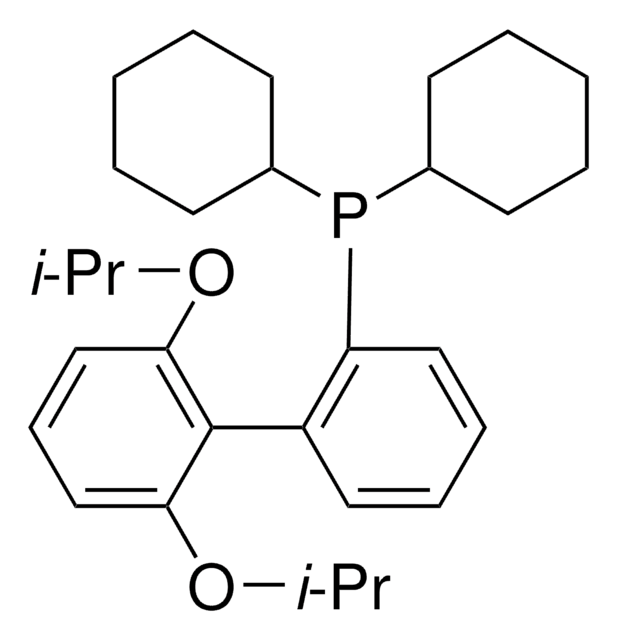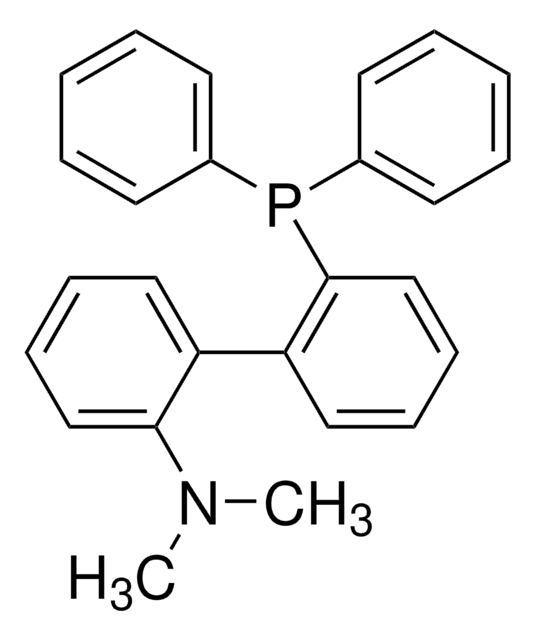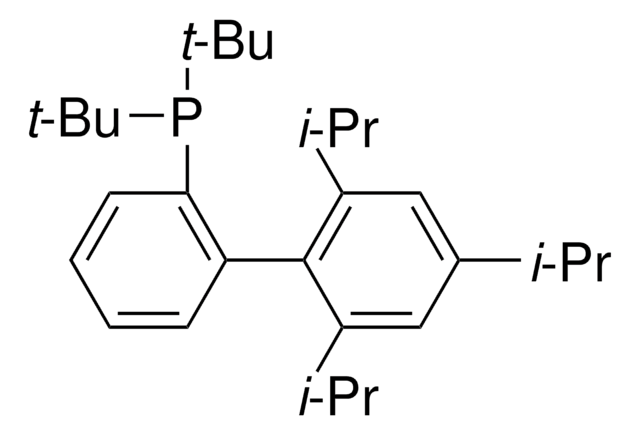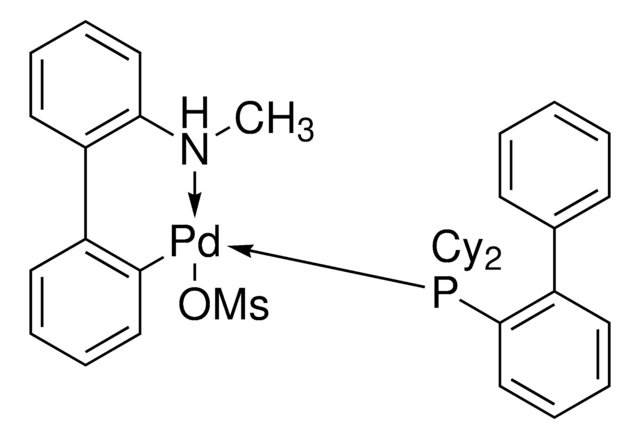638099
CyJohnPhos
97%
Synonym(s):
2-(Dicyclohexylphosphino)biphenyl, (2-Biphenyl)dicyclohexylphosphine, Cyclohexyl JohnPhos
About This Item
Recommended Products
Assay
97%
reaction suitability
reaction type: Cross Couplings
reagent type: ligand
reaction type: Arylations
reagent type: ligand
reaction type: Buchwald-Hartwig Cross Coupling Reaction
reagent type: ligand
reaction type: C-X Bond Formation
reagent type: ligand
reaction type: Hiyama Coupling
reagent type: ligand
reaction type: Methylations
reagent type: ligand
reaction type: Negishi Coupling
reagent type: ligand
reaction type: Oxidations
reagent type: ligand
reaction type: Suzuki-Miyaura Coupling
mp
102-106 °C (lit.)
functional group
phosphine
SMILES string
C1CCC(CC1)P(C2CCCCC2)c3ccccc3-c4ccccc4
InChI
1S/C24H31P/c1-4-12-20(13-5-1)23-18-10-11-19-24(23)25(21-14-6-2-7-15-21)22-16-8-3-9-17-22/h1,4-5,10-13,18-19,21-22H,2-3,6-9,14-17H2
InChI key
LCSNDSFWVKMJCT-UHFFFAOYSA-N
Looking for similar products? Visit Product Comparison Guide
General description
Learn more about Buchwald Phosphine Ligands
Application
Legal Information
Hazard Statements
Hazard Classifications
Aquatic Chronic 4
Storage Class Code
11 - Combustible Solids
WGK
WGK 3
Flash Point(F)
Not applicable
Flash Point(C)
Not applicable
Personal Protective Equipment
Choose from one of the most recent versions:
Already Own This Product?
Find documentation for the products that you have recently purchased in the Document Library.
Customers Also Viewed
Articles
Buchwald Ligands
Buchwald Phosphine Ligands
Buchwald phosphine ligands for C-C, C-N, and C-O bond formation.
Our team of scientists has experience in all areas of research including Life Science, Material Science, Chemical Synthesis, Chromatography, Analytical and many others.
Contact Technical Service
